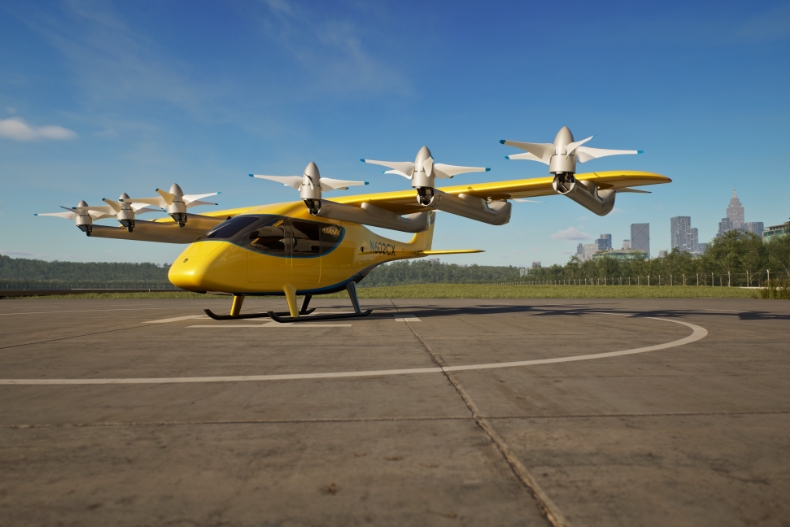The future of mobility is taking shape in Miami, an ideal testing ground for electric vertical take-off and landing (eVTOL) aircraft and autonomous transportation systems.
Through the Miami Engineering Autonomous Mobility Initiative (MEAMI), the University of Miami College of Engineering is accelerating this transformation by combining world-class research, new faculty expertise, and groundbreaking industry partnerships to help shape the future of mobility.
"We're helping redefine the future of how people and goods move," said Pratim Biswas, dean of the College of Engineering. "The convergence of talent, technology, and teamwork here in Miami gives us an unprecedented opportunity to shape the future of mobility in urban areas."

A newly announced partnership with Wisk Aero significantly elevates MEAMI's industry engagement. As a leader in electric vertical takeoff and landing (eVTOL) aircraft, Wisk is developing one of the world's first certified self-flying, all-electric air taxis. Their autonomous, pilotless aircraft are designed for quiet, safe, and accessible air transportation in urban settings, a vision that directly aligns with MEAMI's research mission.
"Miami has demonstrated long-standing support for AAM, making it a natural fit for future Wisk operations," said Sebastien Vigneron, CEO of Wisk. "We're incredibly excited to deepen our roots here at the University of Miami and MEAMI. These partnerships are helping us build the entire AAM ecosystem and unlock the full potential of autonomous operations at scale so we can bring safe, everyday flight to everyone."
The College of Engineering's collaboration with the Advanced Air Mobility Association (AAMA) further extends its reach into policy, regulation, and operational integration. AAMA advocates for scalable, safe deployment of air mobility systems by connecting academic research with real-world implementation strategies.
These new partnerships align with the college's research priorities, supporting innovation across the core focus areas.
- Aerodynamics and Propulsion: GeCheng Zha, professor of mechanical and aerospace engineering, and Bertrand Dano, associate professor in the same department, are developing quieter, more efficient propulsion systems to improve the lift and performance of eVTOL aircraft.
- Artificial Intelligence: Mingzhe Chen, assistant professor of electrical and computer engineering, is creating AI algorithms that help unmanned aerial vehicles (UAVs) safely navigate dynamic environments, avoid obstacles, and interact with other systems.
- Battery Development: Chunlei Wang, professor of mechanical engineering is investigating advanced battery materials to improve performance; Chao Luo, assistant professor of chemical, environmental and materials engineering, is exploring lithium-metal batteries with novel materials and chemistry; and Ali Rownaghi, associate professor in the same department, is developing scalable battery systems that emphasize durability and sustainability.
- Vertiport Infrastructure: Sivakumar Ramanathan, Assistant professor of Practice, Mechanical and Aerospace Engineering focuses on advanced infrastructure materials and computational modeling to ensure safety, comfort, and reliability in vertiport systems.
- Sensors and Imaging: Dean Pratim Biswas, who also serves as professor of chemical, environmental and materials engineering, leads research in sensor development and imaging systems that support situational awareness in autonomous mobility.
- Structural Materials: Qingda Yang, chair and professor of mechanical and aerospace engineering, is modeling new composite materials using high-fidelity simulations to improve strength and longevity. Emrah Celik, associate professor in the same department, specializes in conductive composites essential for lightning protection and electrical integrity in eVTOL design.
As its research grows and new partnerships take shape, MEAMI is helping position the University of Miami as a key player in the national effort to advance air mobility. By combining engineering expertise with industry collaboration, the initiative is accelerating progress on the technical, regulatory, and infrastructure challenges that need to be solved for autonomous transportation to succeed.






